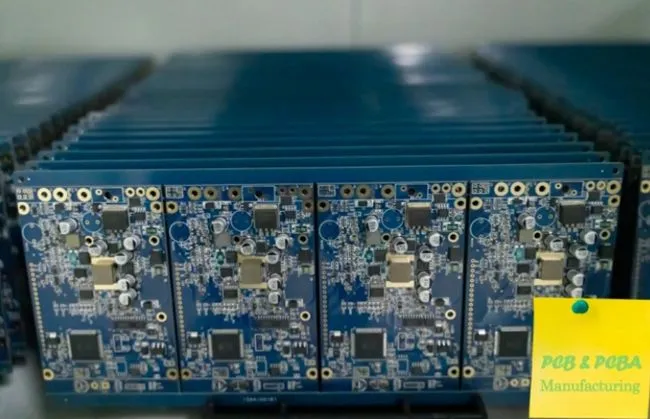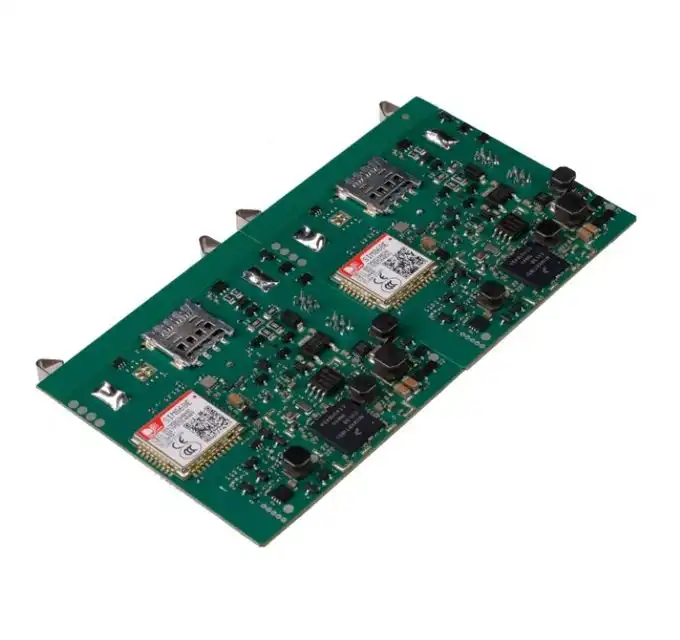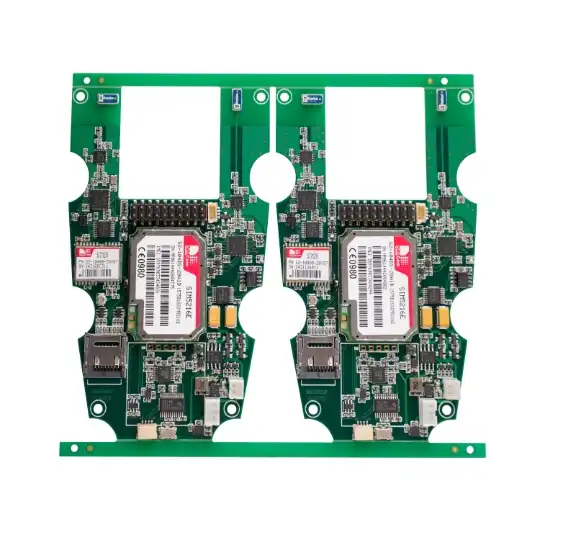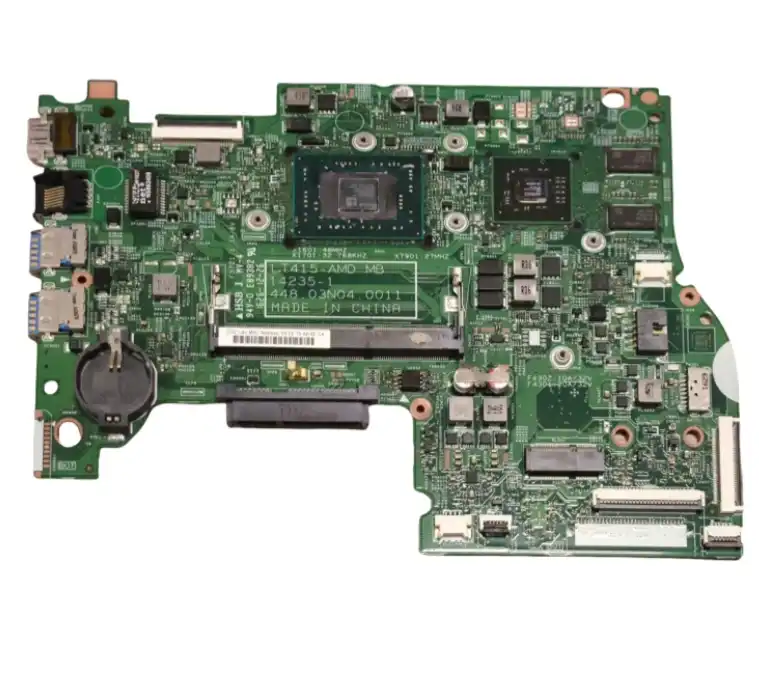Grasping Power Supply PCBA Specifications and Performance Metrics
Power Supply PCBAs form the backbone of countless electronic devices, serving as the crucial link between raw electrical power and the precise voltages required by various components. To make an informed purchase decision, it's essential to grasp the key specifications and performance metrics that define these vital assemblies.
Power Output and Voltage Regulation
The primary function of a Power Supply PCBA is to deliver stable, regulated power to the rest of the system. When evaluating options, pay close attention to the output voltage range and current capacity. Ensure that the PCBA can provide the necessary power for your application while maintaining tight voltage regulation under varying load conditions. Look for assemblies with low ripple and noise characteristics, as these factors can significantly impact the performance of sensitive electronic components.

Efficiency and Power Factor
In today's energy-conscious world, the efficiency of Power Supply PCBAs is a critical consideration. Higher efficiency ratings translate to reduced power consumption and heat generation, leading to lower operating costs and improved reliability. Look for PCBAs that boast high efficiency across a wide range of load conditions. Additionally, consider the power factor, which measures how effectively the PCBA draws power from the mains. A higher power factor indicates more efficient power utilization and can lead to reduced electrical stress on your facility's infrastructure.
Thermal Management and Reliability
Effective thermal management is crucial for the longevity and reliability of Power Supply PCBAs. When assessing options, examine the thermal design of the assembly, including heat sinks, cooling fans, and component layout. PCBAs with robust thermal management solutions can operate more efficiently and reliably, even in challenging environments. Consider the maximum operating temperature and any derating requirements to ensure the PCBA can withstand your application's thermal demands.
Evaluating Manufacturing Quality and Compliance Standards
The quality of Power Supply PCBAs is intrinsically linked to the manufacturing processes and standards employed in their production. As you navigate the purchasing process, it's crucial to delve deeper into the manufacturing aspects that can significantly impact the performance, reliability, and safety of these critical components.
Component Selection and Sourcing
The caliber of individual components used in Power Supply PCBAs plays a pivotal role in determining the overall quality and reliability of the finished product. When evaluating manufacturers, inquire about their component sourcing practices. Reputable producers typically maintain stringent supplier qualification processes and use components from well-established, trusted sources. This approach helps mitigate the risk of counterfeit or substandard parts entering the supply chain, which could compromise the integrity of the Power Supply PCBA.
Manufacturing Process Controls
Advanced manufacturing techniques and rigorous process controls are essential for producing high-quality Power Supply PCBAs. Look for manufacturers that employ state-of-the-art production equipment and adhere to industry-standard manufacturing practices. Key aspects to consider include:
- Automated optical inspection (AOI) systems for detecting soldering defects and component placement errors
- X-ray inspection capabilities for examining hidden solder joints in BGA and other complex packages
- In-circuit testing (ICT) and functional testing procedures to verify electrical performance
- Environmental stress screening (ESS) to identify potential reliability issues
Regulatory Compliance and Certifications
Given the critical nature of power supplies in electronic systems, compliance with relevant safety and electromagnetic compatibility (EMC) standards is paramount. When selecting Power Supply PCBAs, verify that the manufacturer adheres to applicable regulatory requirements and holds relevant certifications. Common standards to look for include:
- UL/CSA for safety compliance in North America
- CE marking for products sold in the European Union
- FCC Part 15 for EMC compliance in the United States
- RoHS and REACH for environmental and chemical safety regulations
Supplier Evaluation and Long-Term Partnership Considerations
Selecting the right supplier for your Power Supply PCBAs extends beyond merely evaluating the technical specifications of the product. Establishing a long-term partnership with a reliable manufacturer can yield significant benefits in terms of product quality, supply chain stability, and ongoing support. As you assess potential suppliers, consider the following key factors that can contribute to a successful and enduring relationship.
Technical Expertise and Design Support
The complexity of Power Supply PCBAs often necessitates a high level of technical expertise from the manufacturer. Look for suppliers that demonstrate a deep understanding of power electronics and can provide valuable design support. A knowledgeable partner can offer insights into component selection, circuit optimization, and thermal management strategies that can enhance the performance and reliability of your Power Supply PCBA. Additionally, suppliers with strong engineering capabilities can assist in customizing designs to meet your specific requirements, potentially reducing development time and costs.
Production Capacity and Scalability
As your product demands evolve, it's crucial to partner with a Power Supply PCBA manufacturer that can scale production to meet your needs. Evaluate the supplier's production capacity, including their ability to handle both low-volume prototype runs and high-volume production orders. Consider factors such as:
- Available manufacturing floor space and equipment
- Workforce flexibility and training programs
- Supply chain management capabilities
- Inventory management systems and just-in-time (JIT) production capabilities
Quality Assurance and Continuous Improvement
The commitment to quality and continuous improvement is a hallmark of top-tier Power Supply PCBA manufacturers. Investigate the supplier's quality management system, including their ISO certifications and any industry-specific quality standards they adhere to. Look for evidence of:
- Comprehensive incoming inspection procedures for components and materials
- In-process quality checks and end-of-line testing protocols
- Statistical process control (SPC) implementation
- Failure analysis and corrective action procedures
- Regular internal and external quality audits
Conclusion
In conclusion, purchasing Power Supply PCBAs requires careful consideration of multiple factors to ensure optimal performance, reliability, and value. By thoroughly evaluating technical specifications, manufacturing quality, compliance standards, and supplier capabilities, you can make an informed decision that aligns with your product requirements and business objectives. When seeking a Power Supply PCBA supplier or manufacturer, prioritize partners who demonstrate technical expertise, scalability, and a commitment to quality. Collaborating with a reputable Power Supply PCBA manufacturer can significantly enhance your product's performance and streamline your development process.
FAQ
What are the most critical electrical parameters to consider when selecting a Power Supply PCBA?
Key parameters include output voltage range, current capacity, efficiency, ripple and noise levels, and power factor.
How important is thermal management in Power Supply PCBAs?
Thermal management is crucial for ensuring long-term reliability and performance. Effective heat dissipation can significantly extend the lifespan of the PCBA.
What certifications should I look for in a Power Supply PCBA manufacturer?
Look for ISO 9001 for quality management, ISO 14001 for environmental management, and industry-specific certifications like ISO 13485 for medical devices or AS9100 for aerospace applications.
Expert Power Supply PCBA Solutions | Ring PCB
Ring PCB stands at the forefront of Power Supply PCBA manufacturing, leveraging our team of 500+ professionals to deliver innovative and reliable solutions. Our expertise spans R&D, sales, customer support, and manufacturing, ensuring comprehensive service at every stage. With advanced design tools, 24/7 customer service, and ISO-certified quality control, we offer unparalleled support for your Power Supply PCBA needs. For expert guidance and top-tier PCBAs, contact us at [email protected] and experience the Ring PCB difference.
References
1. Johnson, A. (2022). "Advanced Power Supply Design Techniques for Modern Electronics." IEEE Power Electronics Journal, 37(4), 215-230.
2. Smith, R. & Patel, K. (2021). "Quality Assurance in PCBA Manufacturing: Best Practices and Industry Standards." International Journal of Electronics Manufacturing, 19(2), 78-95.
3. Zhang, L. et al. (2023). "Thermal Management Strategies for High-Efficiency Power Supply PCBAs." Journal of Thermal Engineering in Electronics, 45(3), 301-318.
4. Brown, M. (2022). "Navigating Regulatory Compliance in Global PCBA Manufacturing." Compliance Today Magazine, 18(6), 42-55.
5. Davis, E. & Wilson, T. (2023). "Supplier Evaluation Metrics for Electronics Manufacturing Services." Supply Chain Management Review, 27(4), 112-128.





